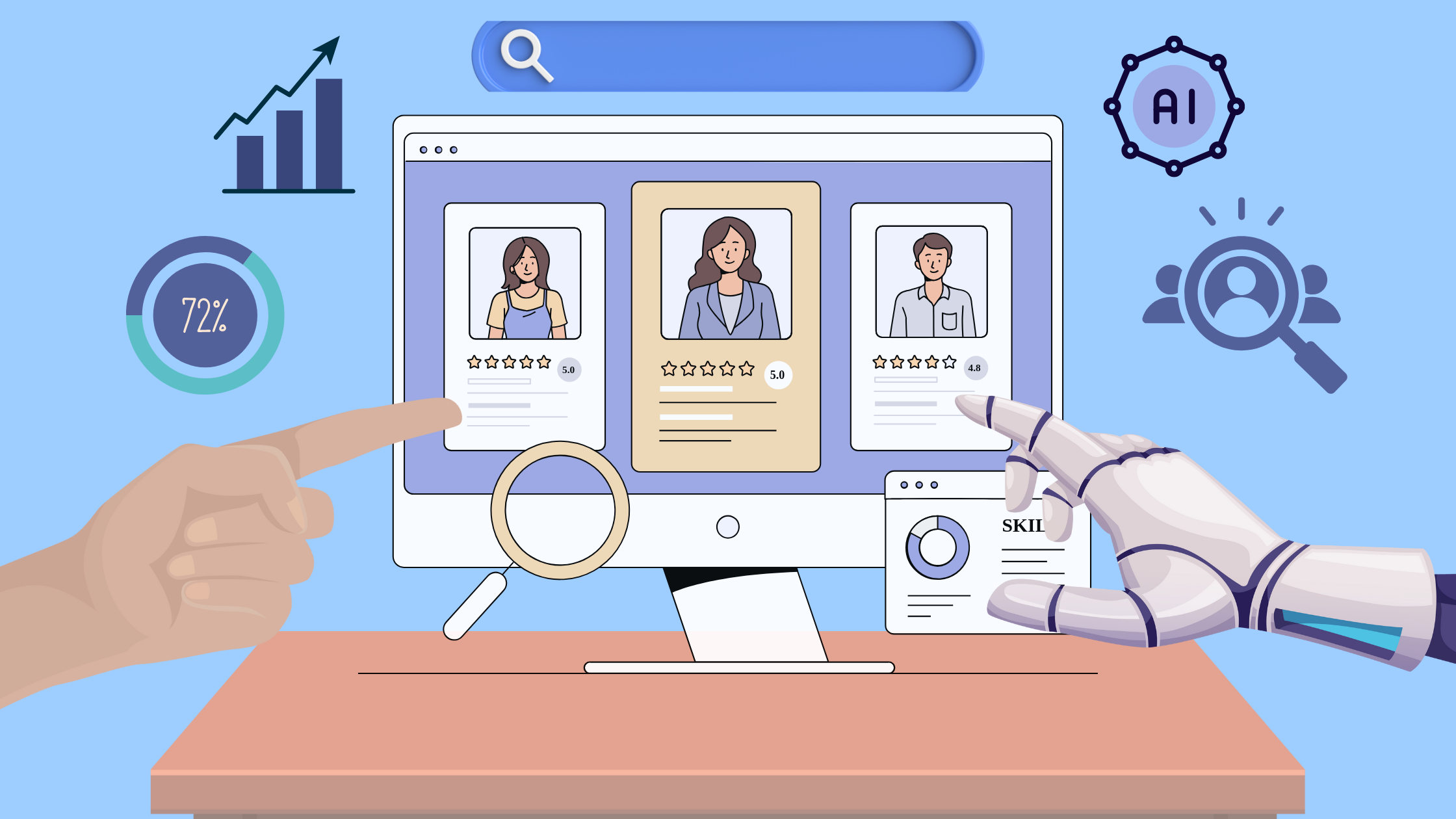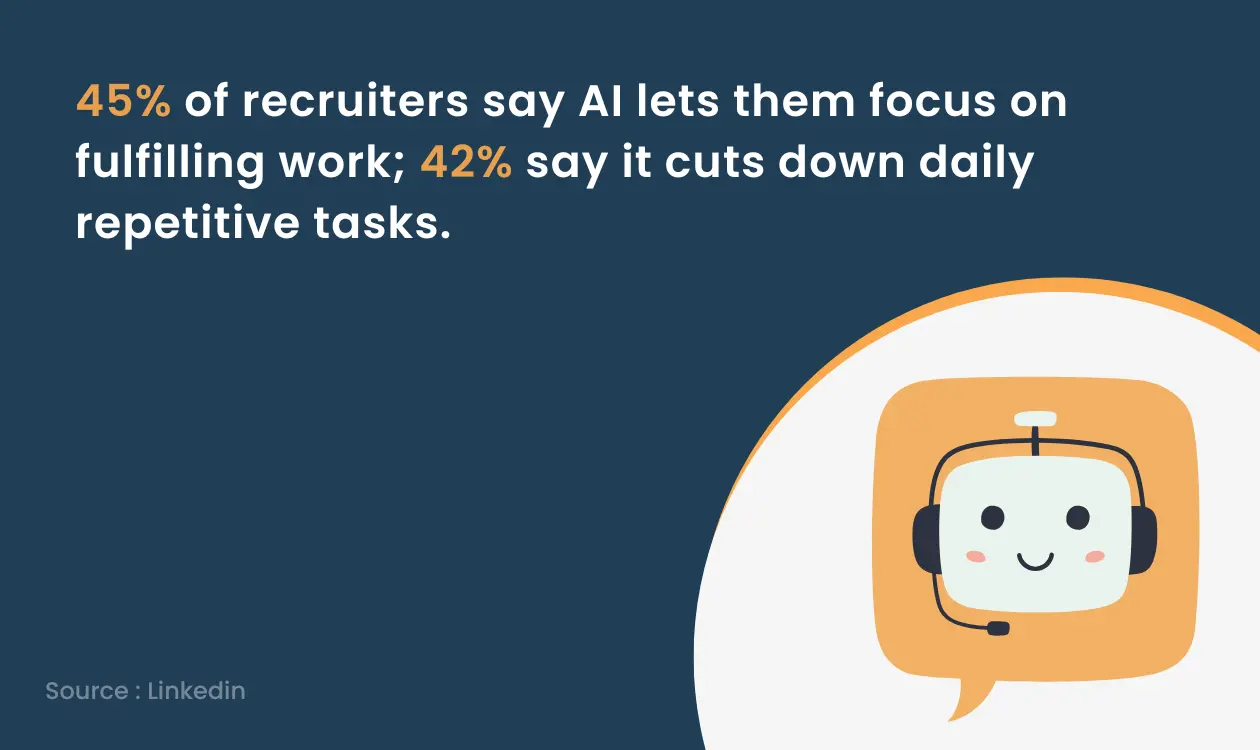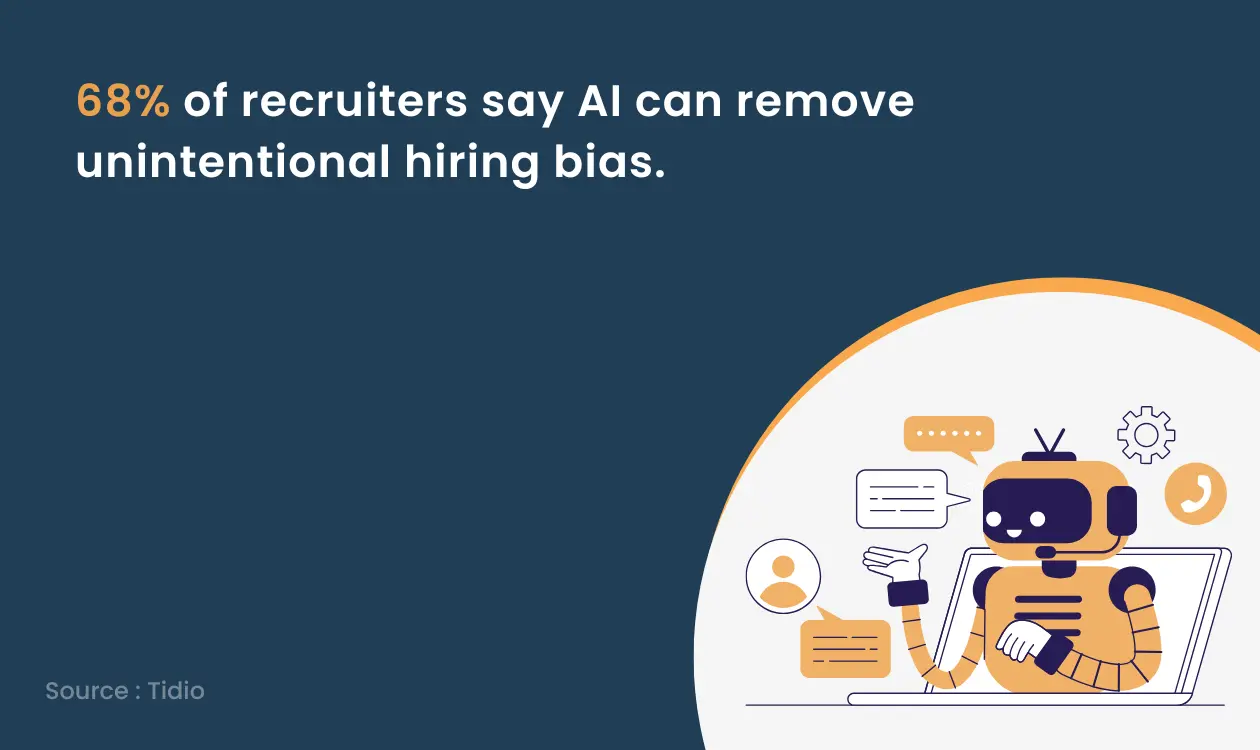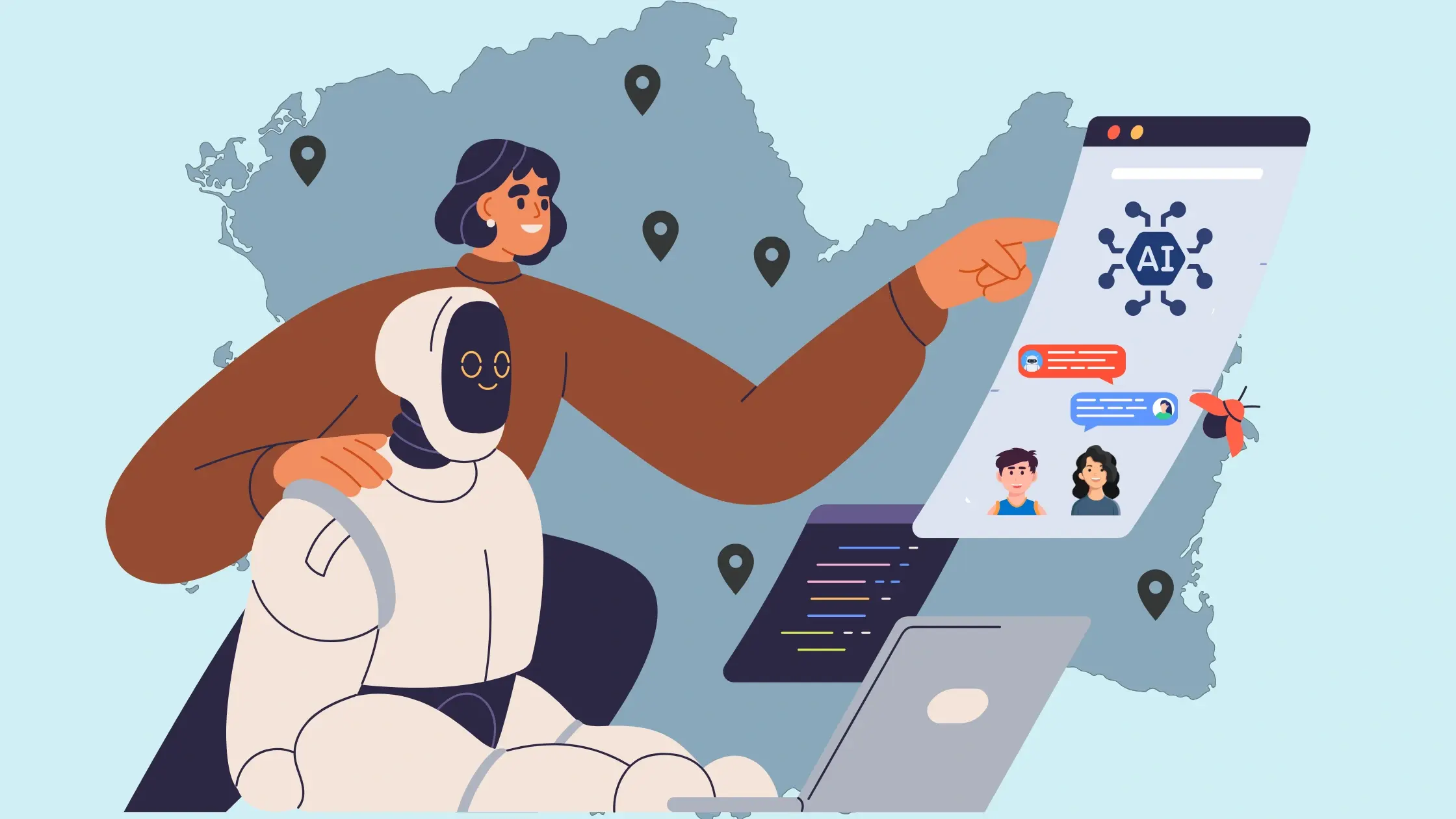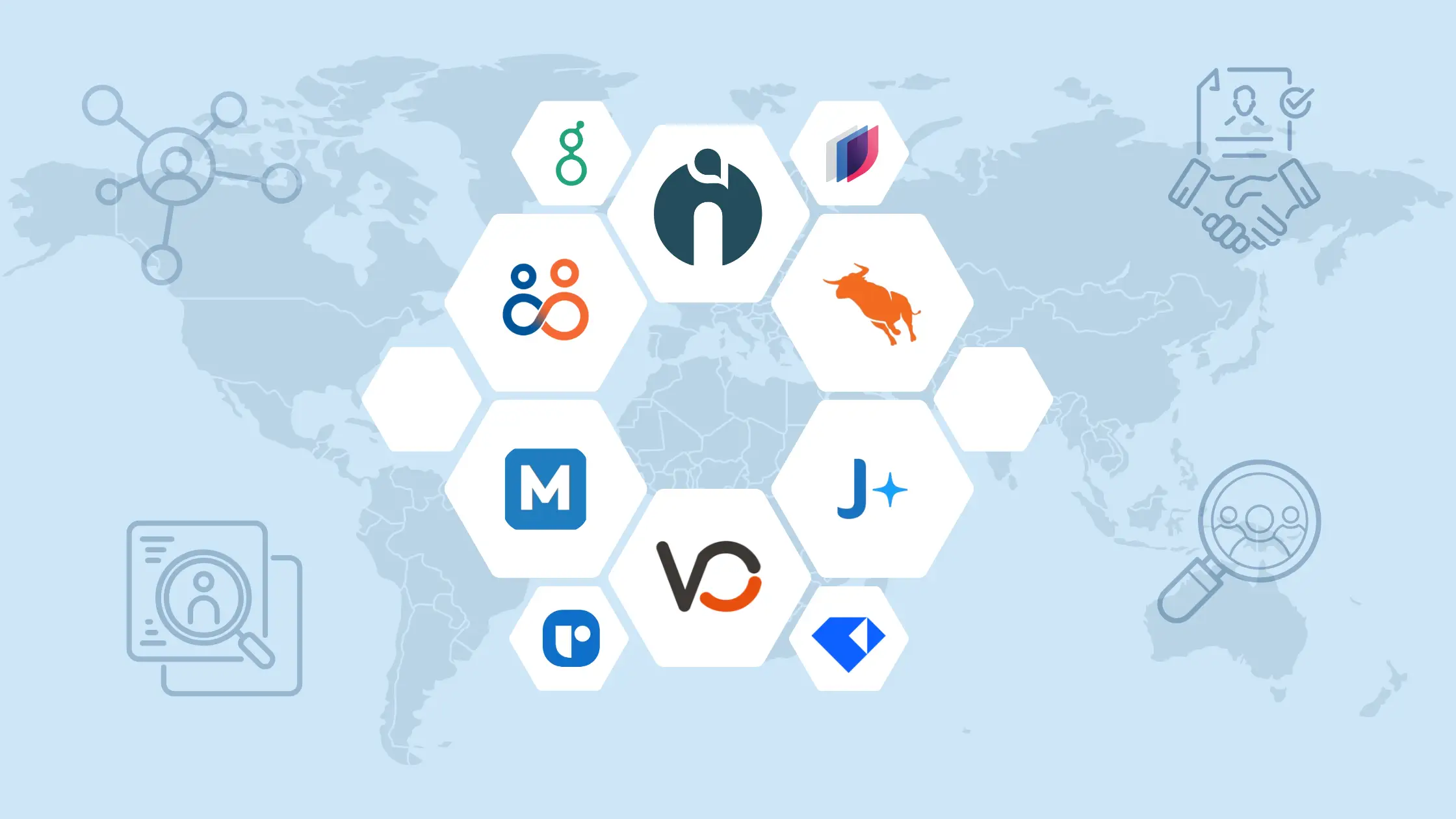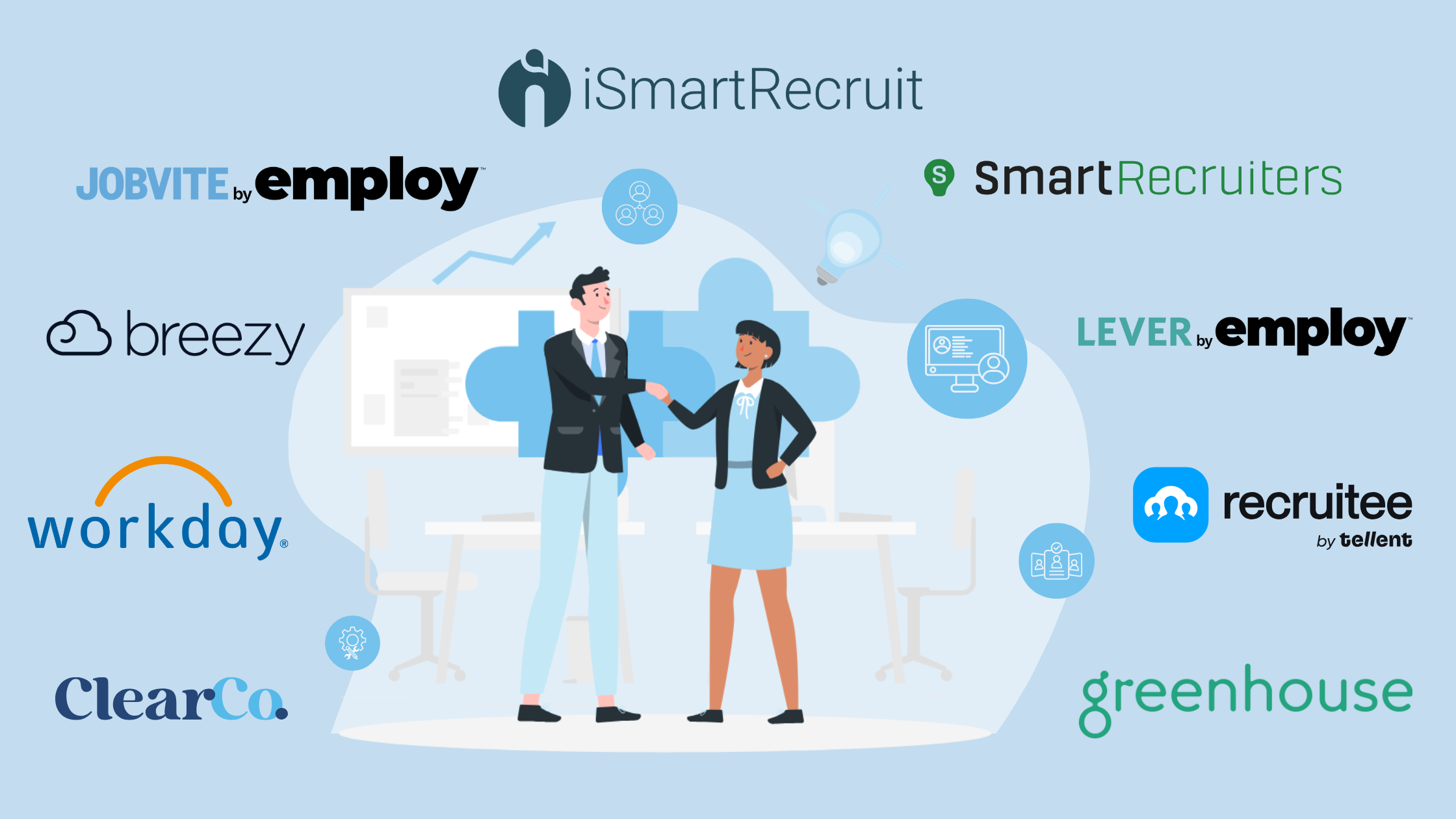Today’s hiring landscape moves fast, and recruiters are under growing pressure to keep up. Top candidates do not stay available for long, and delays in hiring can cost companies dearly. Traditional methods like manual CV screening and scheduling simply cannot match the speed and scale modern recruitment demands.
Enter AI recruitment agents, your always-on talent scouts. These intelligent tools work around the clock to find, screen, and engage candidates across platforms. From scanning resumes to matching profiles and reaching out to top talent, they operate tirelessly in the background.
Imagine a hiring assistant that never sleeps, never slows down, and consistently helps you make smarter decisions. With features like predictive analytics and behavioural scoring, AI recruitment agents do more than automate; they optimise your hiring outcomes.
Indeed, the AI doesn't exist actually to replace recruiters, but rather to assist them in that number fairly well, with all considerations of handling repetitive work while making it easy for your team to really connect with people to assess fit and deliver what would be a great candidate experience. Well, it's not man versus machine. It's a man with a machine.
So, what exactly are AI recruitment agents, and how do they function as your around-the-clock talent scouts?
What Are AI Recruitment Agents, and Why Are They Your 24/7 Talent Scouts?
In an era where top talent is snapped up faster than ever, recruitment demands speed, precision, and scale. Traditional hiring methods - manual resume screening, delayed outreach, and repetitive communication - often fall short. That’s where AI recruitment agents step in.
These intelligent systems function as digital talent scouts, working around the clock to source, screen, and engage candidates across multiple platforms. No matter if you're filling lots of roles or looking for that special technical expert, a recruiting AI agent can seriously speed up your recruitment process without skimping on quality.
How Do AI Recruitment Agents Actually Work?
An AI recruitment agent is not just a fancy algorithm; it’s an end-to-end hiring assistant. Leveraging technologies like machine learning, natural language processing (NLP), and automation, these systems replicate and enhance the tasks a recruiter performs daily.
From parsing thousands of CVs in seconds to assessing candidate fit using behavioural data, these AI agents intelligently match profiles to job descriptions. They can rank candidates, trigger automated outreach sequences, and even schedule interviews without any human intervention. Integrated with an Applicant Tracking System (ATS) like iSmartRecruit, these tools become even more powerful, enabling seamless coordination across hiring teams.
Why Your Business Needs a 24/7 Talent Scout?
Having an always-on recruitment solution isn’t just a convenience; it’s a competitive necessity. In-demand candidates are often off the market in just 10 days, and a delayed response can cost you a perfect hire. AI recruitment agents act as your round-the-clock talent scouts, identifying and engaging candidates the moment they become available. This ensures your business stays one step ahead, especially in industries where hiring speed makes all the difference.
In addition, the global nature of hiring today means you're no longer restricted by geography or time zones. A 24/7 AI agent can interact with candidates in different regions without delay, enhancing your employer brand and keeping top talent engaged, even while your internal team sleeps.
Why Is an AI Agent for Recruiting a Game-Changer in Modern Hiring?
Using an AI recruitment agent offers advantages that extend beyond mere automation. Imagine it as a constant hiring companion, continually on the lookout for top talent, even when your HR staff is clocked out.. Here’s why companies are rapidly adopting them:
- Time-saving: AI agents reduce time-to-hire by automating repetitive tasks.
- Better candidate experience: With AI handling prompt communication, no candidate is left in the dark.
- Unbiased screening: AI can evaluate candidates objectively, reducing human bias.
- 24/7 engagement: They never sleep, miss an email, or delay outreach, making them perfect talent scouts for today’s fast-paced job market.
According to Linkedin, 45% of recruiters say AI helps automate tasks so they can spend their time on more fulfilling work, and 42% say it helps remove daily repetitive tasks.
What Real-World Impact Do AI Recruitment Agents Have?
The success of AI agents in recruiting is no longer theoretical; companies are already seeing tangible results.
Take Chipotle Mexican Grill, for example. By deploying “Ava Cado,” their AI-based recruitment assistant, the company boosted application completion rates from 50% to 85% and cut hiring time from 12 days to just four.
Another example is OptimHire, whose AI agent reduced the time-to-hire from months to 12 days while significantly lowering recruitment costs.
It's not just big names; even growing startups are seeing real benefits from AI hiring tools. Take LinkedIn, for instance – they've brought in AI-powered assistants to speed up the process of sifting through applications and picking out the best candidates. This shows that no matter the size of your company, an AI recruitment agent can seriously improve the way you find and hire talent.
How Does an AI Recruitment Agent Act as a Talent Scout?
Instead of just passively waiting for applications like conventional methods, AI agents actively search across the digital world. They examine huge amounts of data, spanning LinkedIn profiles, job boards, career websites, and resumes stored in your Recruitment CRM, to pinpoint high-caliber candidates, including those who haven't submitted an application yet.
They can even gauge passive candidates’ likelihood of switching jobs and recommend outreach at the right time, just like a seasoned headhunter, but much faster and without fatigue. Their ability to continuously source and score candidates, combined with real-time updates, makes them ideal 24/7 talent scouts for growing organisations.
The Perfect Partnership: Recruiters + AI Talent Scouts
One of the biggest misconceptions is that AI will replace human recruiters. In reality, the best hiring outcomes come from a hybrid approach. AI agents take care of the heavy lifting of screening, scoring, and scheduling so that recruiters can focus on the human side of hiring: interviews, relationship-building, and cultural alignment. According to Tidio, 68% of recruiters believe that using AI in the recruitment process can help remove unintentional bias.
AI-powered recruiters are more efficient and quicker. They gain a deeper understanding, dedicate more hours to interacting with potential hires, and ultimately bring on board superior candidates. This collaboration isn't humans against technology; humans work alongside technology.
What Are the Challenges of Using AI Recruitment Agents?
Despite their promise, AI recruitment agents aren’t without challenges:
- Data privacy concerns: Companies must ensure GDPR compliance and protect candidate information.
- Bias in AI models: AI is only as good as the data it learns from; biases in training data can still affect outcomes.
- Integration hurdles: AI tools must integrate smoothly with existing HR tech stacks like your ATS or CRM for maximum benefit.
That’s why it’s essential to choose recruitment software which offers built-in AI capabilities while maintaining compliance and data transparency.
How to Choose Your Ideal AI Recruitment Agent?
When evaluating AI recruitment tools, it's super important to think about your own hiring needs first. Begin by figuring out where your current process gets held up. Do you need a hand with sifting through loads of applications? Maybe with chatting to candidates or sorting out interview times?
Once that's sorted, take a look at these things:
- Customisation options: Can it adapt to your recruitment workflows?
- Integration capabilities: Will it sync with your current ATS or HR systems?
- Data transparency: Does it offer insights that recruiters can act on?
- Support and training: Will your team be supported in implementation?
A well-chosen AI agent should not only solve today’s problems but also scale with your hiring strategy as you grow.
What’s the Future of Talent Acquisition with AI Agents?
The rise of AI recruitment agents is just the beginning. The future holds even more exciting developments:
- Conversational AI: Chatbots that conduct initial interviews using real-time voice or text.
- Predictive hiring: AI tools forecasting job success and cultural fit before hiring.
- Global multilingual outreach: AI breaking language barriers in sourcing and screening.
As hiring becomes more remote, diverse, and data-driven, the role of AI agents as essential talent scouts will only grow stronger.
Final Thoughts: Is Your Talent Scout Working While You Sleep?
Hiring doesn't have to be a slow, reactive, or manual process anymore. By using an AI recruitment agent, your hiring process becomes proactive, scalable, and continuous. These intelligent talent scouts work tirelessly, making sure you never miss out on the ideal candidate. Whether you're a startup experiencing rapid growth or a large company managing numerous positions, now is the perfect time to adopt the AI-driven future of recruitment.
Frequently Asked Questions (FAQs)
1. What is an AI recruitment agent?
An AI-powered recruitment agent is a solution that uses artificial intelligence to handle things like finding candidates, screening them, and communicating with them throughout the hiring process. It automates a big chunk of the recruitment workload.
2. Can AI recruitment agents replace human recruiters?
No. They enhance human recruiters by automating repetitive tasks, allowing professionals to focus on strategy, interviews, and decision-making.
3. Are AI recruitment agents expensive to implement?
Many platforms, like iSmartRecruit, offer scalable AI features suitable for businesses of all sizes, making adoption more accessible than ever.
4. Do AI Recruiting agents ensure unbiased hiring?
They help reduce bias when trained on diverse, inclusive data. However, human oversight is crucial to ensure fairness.





